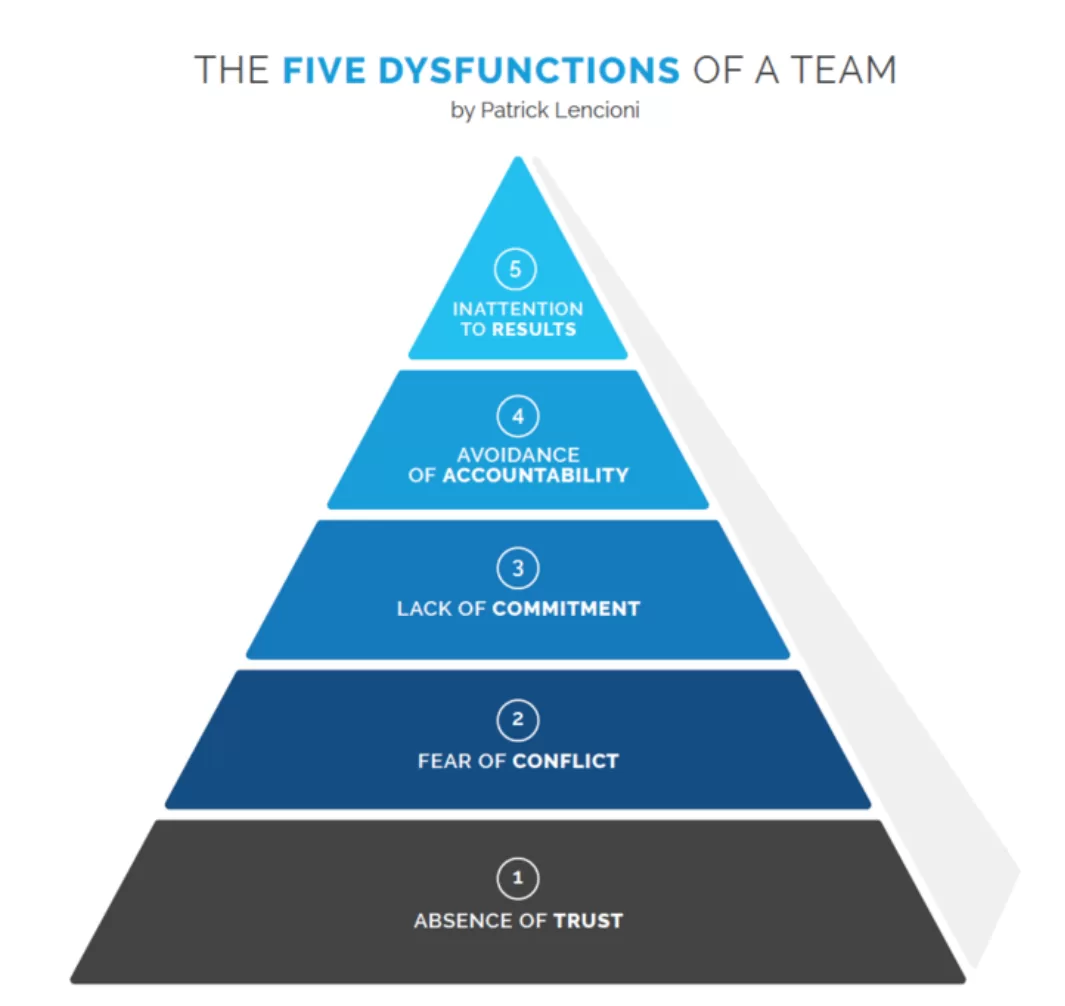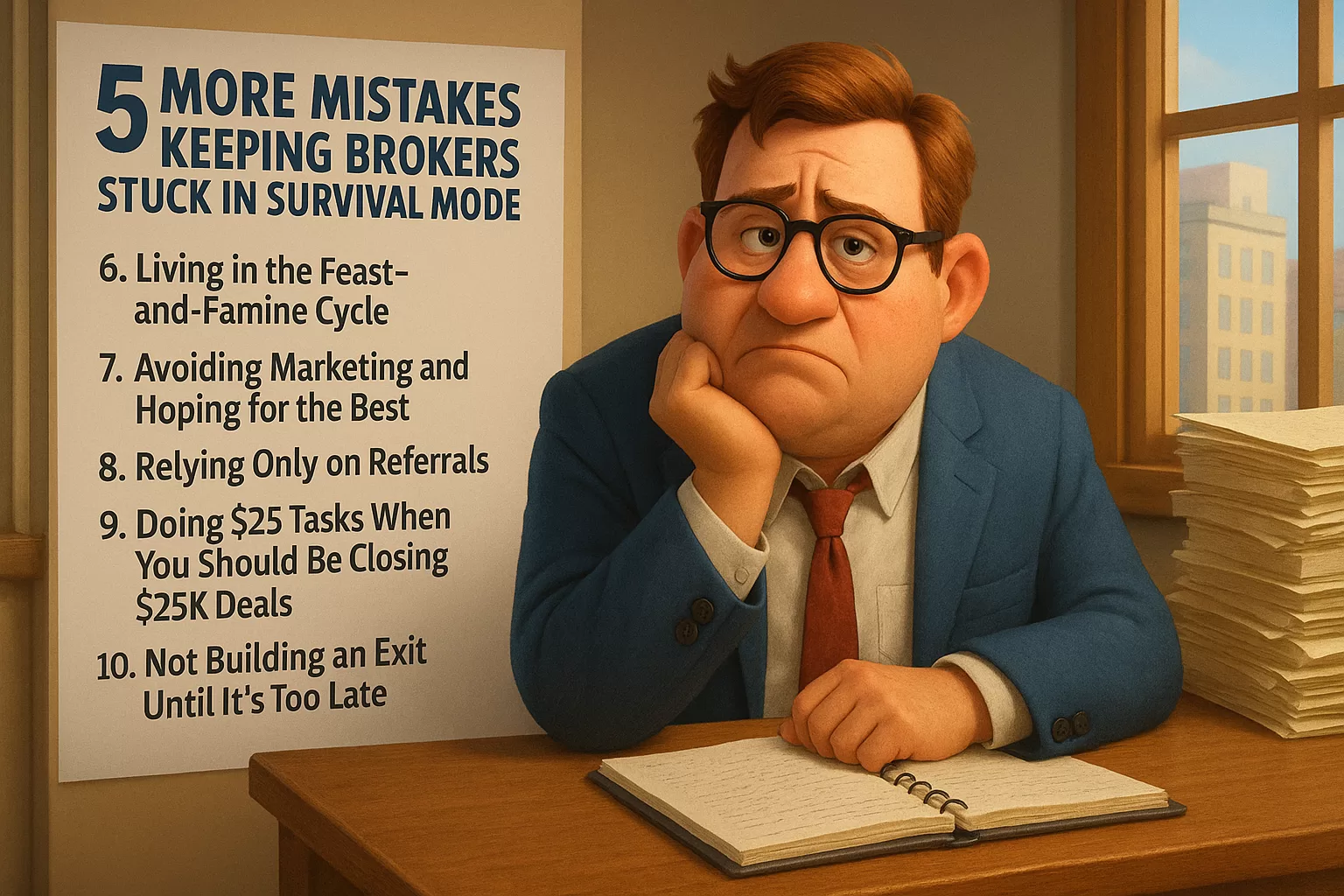Let’s be real for a second.
Just because you’re all under the same brand doesn’t mean you’re a team.
That sounds harsh—but if you’ve ever worked in a brokerage where everyone acts like independent operators with different agendas, you know exactly what I’m talking about. It’s not that anyone’s doing anything wrong. It’s just that no one taught us how to actually work together as a high-performing team.
Patrick Lencioni’s classic, The Five Dysfunctions of a Team, offers a dead-simple model for diagnosing and fixing what’s going wrong. And let me tell you—this thing hits home for small CRE firms.
Here’s why this matters:
When a team isn’t clicking, it doesn’t just feel bad—it kills growth.
-
Information gets hoarded.
-
People work at cross-purposes.
-
Conflict is avoided (or it gets personal).
-
Accountability disappears.
-
And goals? What goals?
This isn’t a “culture problem.” It’s a business problem—and it’s fixable.
The Pyramid of Dysfunction (and How to Flip It)
Lencioni maps out five dysfunctions—layered like a pyramid—each one building on the one below. Here’s how it looks for CRE brokerage teams:
1. Absence of Trust
No one wants to show weakness.
People hide mistakes. Don’t ask for help. Don’t admit when they’re struggling.
Fix it:
Create a culture where vulnerability isn’t punished. Start with the partners or team leads. Admit your own missteps. Reward transparency. Build the habit of sharing—not just results, but the messy middle of doing deals.
2. Fear of Conflict
We all hate tension. So instead of healthy debate, you get fake harmony and back-channel complaints.
Fix it:
Normalize open disagreement. In deal reviews or strategy meetings, make space for people to push back. You want constructive friction, not groupthink.
3. Lack of Commitment
When there’s no real debate, there’s no real buy-in. People nod along, then do whatever they want anyway.
Fix it:
After a decision is made, make sure everyone understands what was decided, why, and what their role is. Ask each person to restate it in their own words. That clarity turns agreement into alignment.
4. Avoidance of Accountability
No one wants to call someone out—especially when they’re your buddy. But without accountability, standards erode fast.
Fix it:
Use team scorecards. Set visible targets. Make commitments public. When people know their teammates are watching, they step up.
5. Inattention to Results
This is the killer. People prioritize personal wins over team outcomes.
Someone hits their number, but the office is bleeding revenue. And no one says a word.
Fix it:
Reward team results, not just individual production. Set collective goals. Celebrate shared wins. If the team’s not winning, no one’s really winning.
Why This Is a Game-Changer for Small CRE Teams
In small shops, these dysfunctions show up fast and hit hard.
There’s nowhere to hide. And the difference between a group of producers and a true team is night and day.
When you fix the foundation:
-
Deals flow faster
-
Cross-collaboration increases
-
Accountability becomes normal
-
New brokers ramp up quicker
-
The firm actually becomes… fun again
You don’t need a big HR department or retreats in the woods. You need a simple framework, clear conversations, and a commitment to keep improving.



